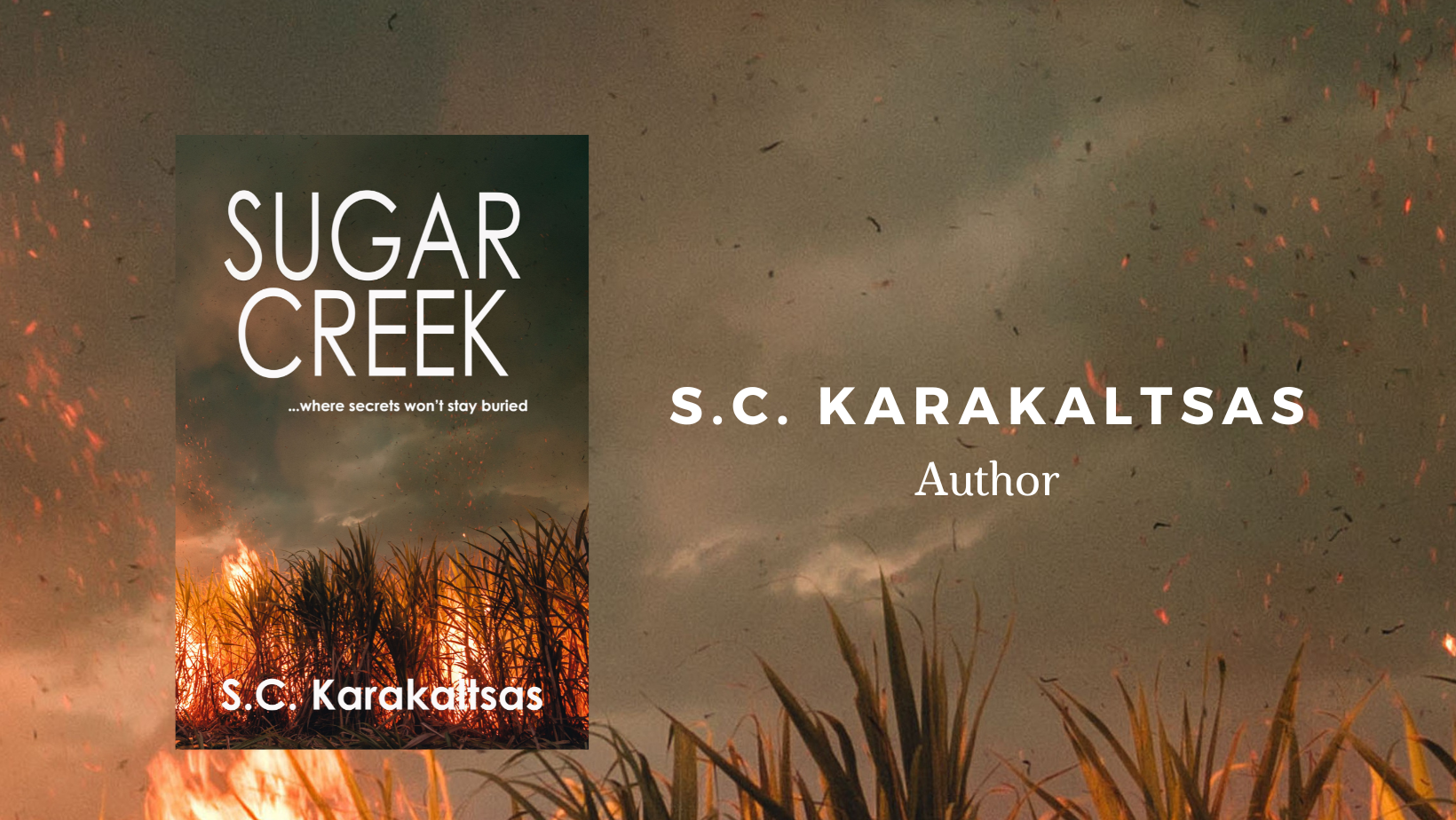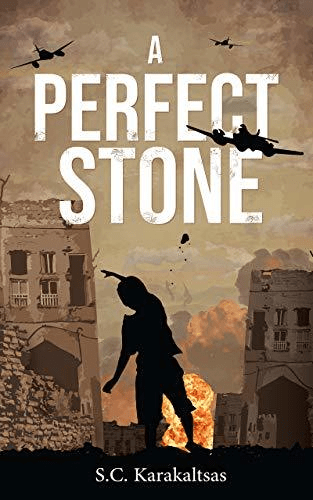How do you find a place to belong when there’s nowhere else to go?
Living alone, eighty-year-old Jim Philips potters in his garden feeding his magpies. He doesn’t think much of his nosy neighbours or telemarketers. All he wants to do is live in peace.
Cleaning out a box belonging to his late wife, he finds something which triggers the memories of a childhood he’s hidden, not just from his overprotective middle-aged daughter, Helen, but from himself. When Jim has a stroke and begins speaking another language, Helen is shocked to find out her father is not who she thinks he is.
Jim’s suppressed memories surface in the most unimaginable way when he finally confronts what happened when, as a ten-year-old, he was forced at gunpoint to leave his family and trek barefoot through the mountains to escape the Greek Civil War in 1948.
A Perfect Stone is a sweeping tale of survival, loss and love.
Available from
Reviews:
Meredith Langford said:
And just last week I read A Perfect Stone by S.C. Karakaltsas set in part during the Greek Civil War. The juxtaposition of chapters on Dimitri’s life as a child fleeing war-torn Greece and his later life as Jim is powerful. It takes a stroke/neurological crisis to break down the many layers of a seemingly average older Aussie bloke called Jim Phillips. The effect is heart-breaking – for his middle-aged daughter Helen, the hospital staff, his neighbours and us – the readers.
Recurrent images, from the powerful portrayal of young Dimitri’s shame and guilt about a dead soldier to his later life in Australia as Jim and his everyday squabbles with his middle-aged daughter, to something as simple as his care and concern for a Magpie family in the midst of such an emotional storm, provide a strong and compassionate portrait of the main character over his lifetime.
The story of young children – their exhaustion, hunger, and ultimate survival is riveting. It makes me think differently about my neighbours – eastern European, Asian – of where they’ve come from and what they may have endured to get here.
I loved the writing and the fastidious research and simply couldn’t put it down.
Peter Lingard, author of ‘Boswell’s Fairies’, said,
It can’t ever be easy for children to grow up during a civil war but that’s what Dimitri has to do. Part of A Perfect Stone by S C Karakaltsas is set in the time of the Greek civil war. Dimitri and other children are taken from their parents and begin a long and arduous trek, which includes crossing snow-capped mountains in bare feet, to Macedonia. Years later, in Australia, a man recovering from a stroke speaks in an unrecognised language and his distressed daughter needs to know why. This sometimes harrowing tale nailed me in the opening chapters and the book soon became ‘unputdownable’.
Lisa from ANZ Litlovers said:
Greek migrants have been coming to Melbourne ever since the Gold Rush but their numbers surged in the postwar era when Arthur Calwell’s ‘populate or perish’ immigration program offered hope and a home to peoples devastated by the war. People of Greek heritage are now an integral part of the fabric of our city, so much so that Melbourne is said to be the third-largest Greek city in the world. Like many other Melburnians, I have friends of Greek heritage and I have celebrated their festivals, dined in their restaurants, and tangled my toes in Zorba’s dance to the music of Mikis Theodorakis on Greek Independence Day. And yet until I read A Perfect Stone by Melbourne author Sylvia Karakaltsas, I did not know a thing about the Greek Civil War (1946-1949).
See more of her review
AWARDS
In December 2018, the cover for A Perfect Stone won a Gold Star. The cover was designed by Jonny Lynch.
Interviews
I was interviewed by the Canadian Macedonian Historical Society about A Perfect Stone. Together with fellow Melbourne writer, Tom Petsinis who spoke about his two novels, Fitzroy Raw and Fog, we talked about out motivations behind the stories, the research, the titles and what our process was. All three novels are centred around a Macedonian character and as there are so few fiction novels featuring Macedonian stories, the society was keen to know more.
The interview can be viewed on Youtube. Take a look.

